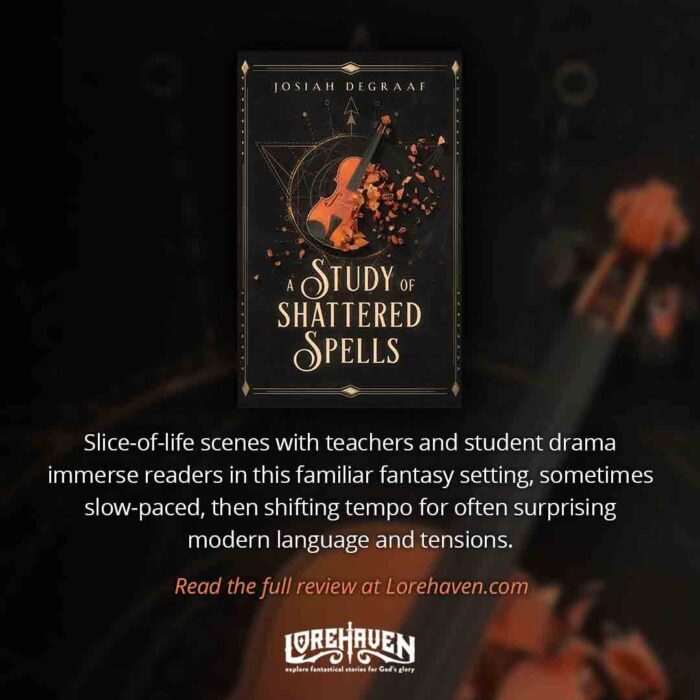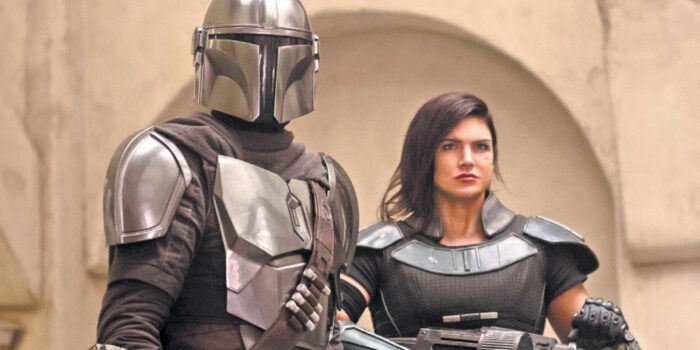The Mandalorian is a Religious Fundamentalist, and Here’s Why That’s Awesome
I doubt I’m alone when I say The Mandalorian is one of the best developments in quite a while for live-action Star Wars.
After the disjointed travesty of Disney’s sequel film series, the adventures of Mando and his random assortment of human and alien allies has recaptured much of the allure, atmosphere, and characters that gave Star Wars its success.
To put it simply: The Mandalorian is fantastic.
But since the Disney+ series released its second season, I’ve been mulling on Mando’s significance as a religious fundamentalist. That identity leads to many fascinating questions as we follow Din Djarin’s character arc over the course of season two.
Why we can call Din Djarin a ‘religious fundamentalist’
As a Mandalorian, Din Djarin lives by several rules. Of course, one of the most famous is the rule that he can never take off his helmet (at least, not when he’s around other people). But he also lives by other rules.
In one episode, Mando quips, “Weapons are a part of my religion.” In context, perhaps we shouldn’t take that too seriously. But Mando’s code also makes him refuse to allow non-Mandalorians to wear Beskar armor. Din Djarin lives by a code of ethics that is tied to his community. You might almost call it a religion.
In fact, the Way of the Mandalore is a religion in the context of this larger universe. Mandalorians aren’t tied together by any country or race. “It’s a creed,” Din Djarin says.1 And like many religions, this creed requires commitment to fellow believers, as we can see when the Mandalorians on Nevarro rescue Din Djarin from the bounty hunters at the cost of their own exposure.2
One might compare the Mandalorian’s credal commitment with certain strains of American Christian fundamentalism. I don’t personally identify myself as a fundamentalist, yet I love The Mandalorian’s positive depiction of fundamentalism. Fans are being drawn into the culture and “the Way” of Mandalorians, and we’re rooting right alongside Mando as he sticks up for his beliefs. We’re angry when Mayfair mocks Mando for his beliefs. We’re shocked when Bo Katan first takes off her mask. And we’re chanting “This is the Way” right beside them.
Religious fundamentalism is cool again.
Even if we’re talking here about a fictional religion, I love that the screenwriters consciously choose to depict deeply-held convictions, which seem odd to our larger world, as beliefs worthy of respect. Where else do you regularly see that in popular culture?
This isn’t the first time Star Wars has done this. The filmmakers also depicted Chirrut Imwe with similar respect in Rogue One. Here the blind quasi-Jedi chanted “I am one with the Force and the Force with me” while smacking down Imperial troops. It’s the symbolic equivalent of a Christian chanting the Apostle’s Creed while taking down monsters and other spawns of Hell.
Every time I see such respectful depiction of religious individuals, I can’t help but smile.
But wait—is the Mandalorian still a religious fundamentalist after season 2?
By season 2, however, the Mandalorian isn’t the same religious fundamentalist that he was at season 1’s end. In fact, he may no longer be a fundamentalist at all.
His character arc began with his argument with Cobb Vanth about who should wear Boba Fett’s armor.3 At this time Din Djarin doesn’t seem to budge from his beliefs. But as you see the ridiculousness of him preparing to fight a good man over armor, you wonder if Djarin has any doubts beneath that impenetrable mask of his. He does indeed compromise and allow Vanth to keep Fett’s armor for some time. But a couple episodes later, Din Djarin finds his beliefs further challenged when he meets Bo-Katan’s gang.
“You are not Mandalorian,” Djarin snaps as soon as they remove their helmets.
“He’s one of them,” one of Bo-Katan’s companions remarks.
“One of what?” Djarin asks.
A few lines later, Bo-Katan explains: “A cult of religious zealots that broke away from Mandalorian society.”
Djarin replies, “There is only one way. The Way of the Mandalore.”
If you’ve spent any time in Christian circles, you know this is exactly how certain debates go in fundamentalist circles.
Still, even as Djarin in this moment flatly opposes Bo-Katan’s ideas, you wonder what he’s really thinking behind his mask—especially when his actions begin to dramatically change throughout the rest of the story.
First, Djarin allows Boba Fett to have back his armor, even after he argued that Beskar armor only belongs to Mandalorians who follow the Creed.
Second, Djarin exchanges his Mandalorian helmet for a Clone trooper one. Djarin’s mission colleague Mayfield then quips, “Seems to me like your rules start to change when you get desperate. I mean, look at you. You said you couldn’t take your helmet off, and now you’ve got a stormtrooper one on. So what’s the rule?”
Finally, of course, Djarin most dramatically violates his rule by fully taking off his helmet: once, to access a machine to find Grogu (“Baby Yoda”) and save his life, and then far more poignantly when he wants to say goodbye at the season’s end.
Djarin isn’t just breaking the Creed when he’s desperate. He’s breaking the Creed because he no longer thinks strict adherence helps him live out the good life. If he always wears a helmet, he’ll miss connecting personally with Grogu. So he breaks his rules. He’s still 100 percent Mandalorian. But perhaps he now no longer believes certain parts of the Creed are iron-clad.
Our world often prefers to dismiss religious beliefs and disagreements as quaint and unimportant. But in The Mandalorian, even when Djarin does turn from some of his beliefs, his story reminds us that these beliefs and disagreements are still meaningful, and can provide us with fantastic narrative drama.
How to think biblically through the Mandalorian’s fundamentalism
What does this mean for us as Christians? We might be tempted to insert our pet beliefs into The Mandalorian’s world, using use it to say what we want, such as “KJV-only Christians are as narrow-minded as helmet-wearing Mandalorians!” or “We should embrace liberal progressivism just like the Mandalorian throws out his closed-minded beliefs!”
But that’s lazy literary analysis, because The Mandalorian’s creators do not mean this story as an analogy for any sect or belief. We ought to accept this series for what it is and not twist it to match our biases.
For thoughtful Christians, I propose we instead pursue discussion questions like:
- What does it look like to hold unpopular beliefs with the same support-inducing confidence that the Mandalorian does?
- In what ways might certain beliefs lead us to preemptively judge others?
- How can legalism prevent us from authentically connecting with others?
- When should we hold to our beliefs no matter the cost, and when do the costs of certain beliefs reveal how false those beliefs may be?
As we debate whether Din Djarin made right decisions, we have a new opportunity to examine our own faith as we also wrestle with how we can live out a biblical faith in the midst of a confused and unbelieving world. Or, to paraphrase Paul: we examine what it means to live out a faith that is in the world, but not of the world.
The Mandalorian is a secular television series. But it wrestles with powerful religious themes and reminds us that even non-Christians have the common grace to explore meaningful truths and concepts in relevant ways.
I can’t wait to explore this theme more as we follow Mando’s journey in season 3.


































As a Lutheran, The Mandalorian’s “fundamentalism” was quite the emotional roller coaster.
I never mistook him for a Christian, but his strong community and call-and-response liturgy resonated with my own tradition. That the moon of Mandalore shared a name with the church’s publishing house and the small Missouri town around which my family’s tradition grew certainly enhanced the connection. It was exhilarating to see him stand firm against scoffers and excel not just in spite of his traditions, but because of them.
And then, on the back end, he’s gone from Sola Scriptura (Sola Via?) to a historical critical hermeneutic. Again, the character wasn’t supposed to be a Christian, and his progression was interesting and edifying in-universe, but insofar as I identified his tradition with mine, it was somewhat disheartening.
The Way of the Mandalore not being a clean analog for a church made things more disappointing, in a way. It was one thing to latch on to an explicitly Christian character and then get taken for a ride when they gave up their faith, but here I had tempered my expectations and STILL been disappointed, in a way that made me perhaps rightly feel a bit stupid about caring in the first place.
Perhaps one of the challenges is the fact that Din Djarin’s arc is subtle and largely internal. There are probably reasons for that; I don’t know that most viewers would be interested in long debates between Din Djarin and Bo Katan about the nature of true Mandalorianism and how strictly they should follow the rules, even if I’d have been totally game for that! But as a result, we’re left to deduce the reasons for his arc through the few comments he gives, his body language (sans facial expressions), and his actions and to connect the pieces through that.
I didn’t personally find his arc disappointing since I didn’t identify him with any particular tradition and just saw it as an interesting case study of a deconstructing fundamentalist that was more than I expected from a popcorn show, but I do understand why his arc (especially given its non-explained nature) may be disappointing to someone who did!
In regards to Mando’s integration with Bo Katan, I saw an unspoken message hiding in the subtext. She called out his beliefs as being part of a group of zealots, while she herself acted as the zealous terrorist, who would restore Mandalore at any cost. Who is the Zealot, and who keeps the old faith? Fundamental, yes, but zealous for zeal sake? There is one thing higher than all others, the safety of the Foundlings. Exposure of the sect, self-sacrifice of the Smith, even allowing someone to continue to don armor that by all rights does not belong to them, if TI means protection of the Foundlings. I expect, as you said, these themes will continue to be explored in Season 3, and perhaps in Book of Boba Fett too. And I too look forward to it.